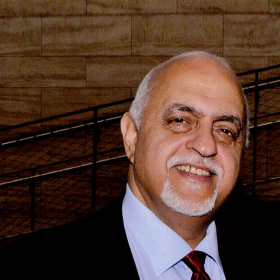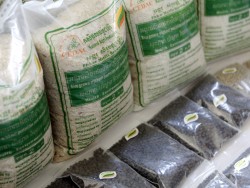Mr Chakib Belhassan has over 25 years of experience with the UN system, mainly with UNOPS, where he has been occupying increasing managerial responsibilities in the organization, as Project Manager, Portfolio Manager, Unit Manager and then Office Director.
During his career, he acquired a large experience in different working environments from conflict/post‑conflict, crisis, transition and development situations.
Mr Belhassan has covered a wide range of managerial functions that forged a style of results‑based management and team‑building approach.
Mr Belhassan has worked with a range of organizations and institutions, recipient government institutions, donor institutions, multilateral organizations, International Financial Institutions and Non-Governmental Organizations. Within the UN family, his experience has been with a range of organizations in the development and humanitarian fields.
Mr Belhassan has been operating in different parts of the globe, in the Middle East (Yemen, Jordan, Iraq, Syria, Lebanon and Palestine), in Africa (Kenya, Democratic Republic of the Congo, Somalia, Senegal, Djibouti, Ethiopia, Sudan, Tunisia, Libya, Algeria and Morocco), in Central Asia and in Europe.
Mr Belhassan has been advocating for partnerships and inter-agency cooperation to achieve results. Analysis of country situations, design of projects with intervention strategies, provision of implementation support with a problem‑solving approach have all been part of Mr Belhassan's strengths throughout his professional career.
Mr Belhassan is a dual national, Moroccan and Canadian. He was born in Casablanca and has a background in international development, medical and social sciences. He studied in Universities of Ottawa and Sherbrooke in Canada and at the University Hassan II in Casablanca.


